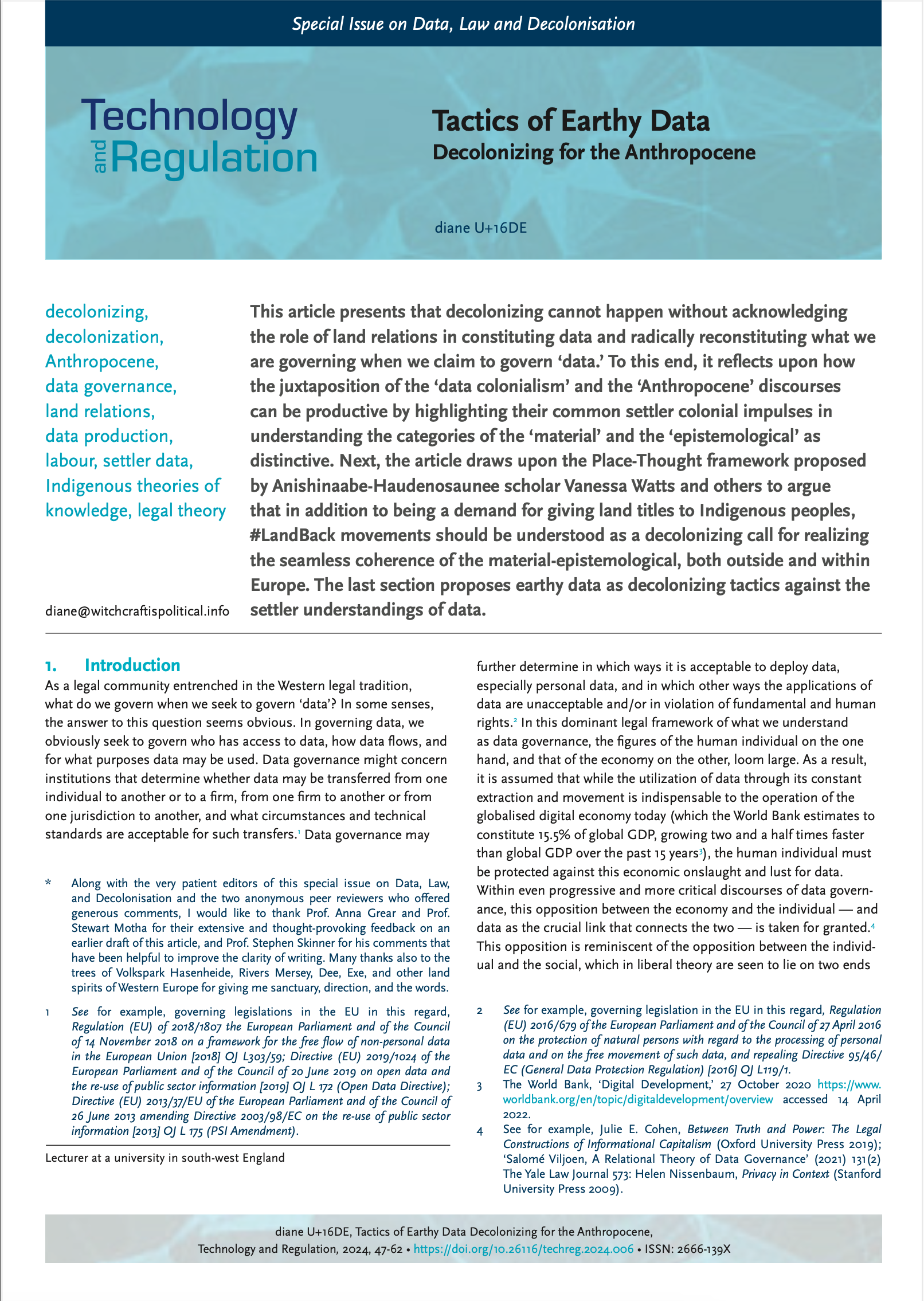A Tactics of Earthy Data
Decolonising for the Anthropocene
DOI:
https://doi.org/10.26116/techreg.2024.006Keywords:
decolonisation, decolonization, data governance, Anthropocene, Land Back, race, racial form, analytics of race, Digital earth, data production, Place-Thought Framework, Indigenous theories of knowledgeAbstract
As climate change accelerates and the exploitation of the Earth and its peoples through the use of digital technologies deepens, what does it mean to demand decolonising in the context of data governance? The present article centres this question to develop an account of colonialism against the backdrop of law and policy discourses on data governance in the ‘Anthropocene.’ The central argument is as follows: That colonialism (and relatedly, decolonising) in the context of data governance should be understood as shaping not only the access to and distribution of data between the global North and Souths and between the powerful and the dispossessed, but also importantly, its production. Additionally, that such account of colonialism necessarily involves an account of the exploitation of the land to produce data.
In making this argument, the article seeks to distinguish its understanding of colonial operations in the context of data value chains from that of ‘data colonialism,’ a concept that has been influential in the past decade within settler discourses. In this latter account, data colonialism has been cast as a discontinuity and a relatively recent development in the longer history of colonialism. By contrast, I argue against such discontinuity proposing that decolonising data governance would mean accounting not just for the oppressions and exclusions embedded in the access and distribution of data but also those power relations embedded within data production, whereby the latter includes the exploitation of the land. Such accounting of the exploitation of lands as part of the power relations embedded within the production of data becomes highly relevant with the deepening exploitation of the Earth and her peoples in the ‘Anthropocene.‘
The article draws upon Indigenous scholarship on land, knowledge, and decolonising in the form of the Place-Thought framework to critique the law and policy discourses of data governance in the intertwined discussions on data colonialism, human rights, and data justice. Through this analysis, I propose that data should be considered not only as an immaterial object of governance, but rather mapped as a material relationship between people and the land against the backdrop of the extractive relationship between global North and Souths. Specifically, I consider the figure of the microchip that plays a key role in the production of data in the digital Earth today and map big data as relations of capitalist production that manifest through extraction of minerals from the land along with the extraction of labour from racialised bodies for the creation of these devices. Based on such mapping, I argue that understanding data in context of relations of production which account for land-based extraction can contribute to the decolonising data governance for the ‘Anthropocene.‘
Downloads

Downloads
Published
Versions
- 22-03-2024 (2)
- 18-03-2024 (1)
Issue
Section
License
Copyright (c) 2024 diane U+16DE

This work is licensed under a Creative Commons Attribution-NonCommercial-NoDerivatives 4.0 International License.


